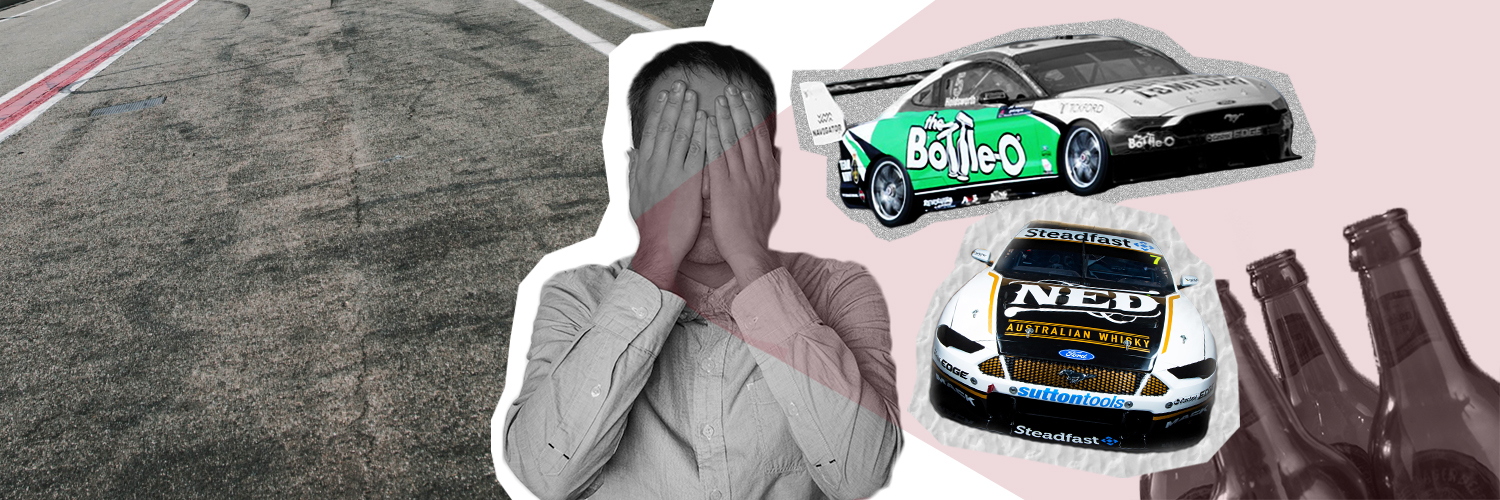Motorsport Australia, the nation’s motor racing governing body, has in recent days proudly announced a new stance on alcohol and illicit drugs.
Commencing 1 March 2020 Motorsport Australia will name and shame all competitors for breaches of its alcohol and illicit drug policies – this includes co-drivers and navigators, officials, team members and contractors attending an event.
Motorsport Australia is following in the footsteps of other sporting codes and governing bodies – NRL, AFL, and Cricket Australia – which are quick to condemn and punish individual athletes for behaving badly (as they should), but fail completely to hold their collective code to the same standard.
Clearly any preventative measure that Motorsport Australia implements, alongside strong enforcement, to deter the sport’s participants from breaching this policy in the first place is a worthy measure.
However, as the governing body responsible for the professional and ethical stewardship of the sport, can and should Motorsport Australia show even greater leadership?
Alcohol advertising and sport is fundamentally an ill-considered partnership – one that makes no sense and causes indisputable harm. It makes no sense because alcohol is not a sports drink and doesn’t feature in the diet of successful high-performing athletes.
Using sport to market alcohol is dangerous, because it promotes a false connection to sporting success, and because we know that the more alcohol advertising a child sees the higher the likelihood they will commence drinking earlier in life and consume more alcohol when they do.
When it comes to motorsport and alcohol advertising, it’s impossible to deny the nexus is even more reckless and dangerous. It is nothing less than a deadly cocktail.
In fact, almost a third of fatal road crashes in Australia involve alcohol, one of the highest rates in the world.
Last year, trauma surgeon John Crozier pulled no punches when he called out Heineken, Formula One and the Melbourne Grand Prix.
“It seems that in partnering with Formula 1, Heineken cares little for how it contributes to Australia’s road toll, as long as it translates to a spike in alcohol and product sales.”
This weekend saw the running of the LiquiMoly Bathurst 12 Hour, Australia’s international endurance race.
All credit to the race promoter that alcohol brands were absent from the list of official sponsors.

But it wasn’t good news on the car entrant front.
Thanks to the sponsorship of Earl Bamber Motorsport’s second Porsche, driven by David Calvert-Jones, enduro ace Romain Dumas and Porsche Junior Jaxon Evans, the Ned whisky brand was front and centre (and the sides) of the number 12 Porsche GT3 R which finished the race in 11th place.

To be fair, Motorsport Australia’s governance role does not extend to the commercial and marketing control of individually-owned and operated motorsports events such as the SuperCars championship, next month’s Formula 1 Grand Prix in Melbourne or last weekend’s Bathurst 12 Hour enduro.
But while the governing body may not be brokering the alcohol sponsorship deals directly, Motorsport Australia has an important role to play to reduce the potential harm.
Arguably, its existing regulations can be interpreted in a fashion that would encompass the protection of children from unhealthy advertising.
Motorsport Australia state that the object of their National Competition Rules are to ensure that the conduct and promotion of motorsport in Australia is carried on in a manner which secures and enhances the safety of spectators, officials and competitors and which encourages the sport to be competitive and fair.
It is simply wrong to promote to the kids watching that alcohol and driving are two activities that should be in any way associated.
Indeed, the sport shouldn’t be promoting an association between the two to children or adults.
Motorsport Australia’s stated purpose is to Continue to promote the principles of safety, fairness and social responsibility in the conduct of motorsport within Australia.
In that spirit we call on Motorsport Australia to proactively demonstrate leadership and take steps to prevent all Australian motorsport events from being used as platforms to market alcohol to Aussie kids.
The End Alcohol Advertising in Sport campaign calls for alcohol advertising to be phased out of professional sports. This is an initiative by the Foundation for Alcohol Research and Education, supported by health organisations across Australia.







